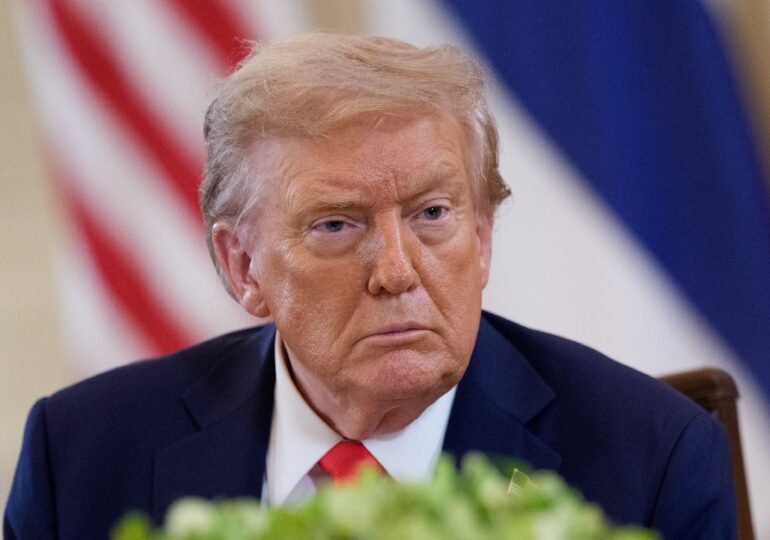The shift in position regarding security guarantees for Ukraine, Europe, and Russia has made the American president appear weak. It remains unclear whether Trump’s America would ever sign something that would effectively bind it to action.
Monday’s meeting of European leaders and the Ukrainian president with Donald Trump at the White House was highly significant. Leaders returned home encouraged by the idea that they had finally managed to persuade the American president not to abandon Europe. Trump pledged to offer „security guarantees” to Ukraine.
The details remained vague - only a possible American air cover was mentioned, but the presidential commitment marked a clear change from months of isolationist rhetoric regarding Ukraine: "it's Europe's problem" and similar points, as noted by Sky News.
Russia, predictable reaction
However, it was clear that Russia could not accept this development. Statements from Trump's envoy over the weekend - suggesting that Putin had agreed for Europe to provide Ukraine with "Article 5-like security guarantees" from NATO - seemed confusing.
Russian Foreign Minister Sergey Lavrov consistently undermined the idea throughout the week, stating that Moscow would not accept any peace plan involving European or NATO troops in Ukraine. "The presence of foreign troops in Ukraine is completely unacceptable to Russia," he reiterated, evoking the same justification used for the 2022 invasion.
Trump caught between Putin and Europe
In fact, Russian diplomatic language avoided directly attacking Trump, preferring to mock European leaders - a suggestive signal. The bilateral meeting between Putin and Zelensky, announced by Trump as "almost agreed" and scheduled in two weeks, now seems highly uncertain.
Perhaps that's why Trump accepted Putin's proposal for a bilateral meeting without him first. Thus, if this fails, it won't be the American president's fault.
NATO and the dilemma of guarantees
On Wednesday, NATO defense chiefs discussed the details of security guarantees - those that Russia will never accept. European sources said the meeting was "a great success."
In response to Lavrov, one source emphasized: "It's not Lavrov's job to decide on security guarantees. The one who threatens doesn't decide how the threat is deterred!"
The European argument is that Russia cannot dictate from which countries Ukraine can or cannot receive troops.
An America hesitant to take on obligations
The problem remains clear: any peace agreement would require an understanding among all parties on security arrangements. The only alternative would be a credible threat of force - something like: "Vladimir, look at what we did to Iran...". But Iran is not a nuclear power.
There is also a crucial aspect: the concept of "security guarantee" implies a firm commitment to defend Ukraine in the long term. Such commitments would require solid treaties, not just vague promises. It's hard to believe that Trump's America would sign something that would actually require it to act.
One option could be a "layered" guarantee system, gradually strengthened. However, from the Kremlin's perspective, this would only be a repetition of history and would provide a new pretext for retaliation.
G.P.

